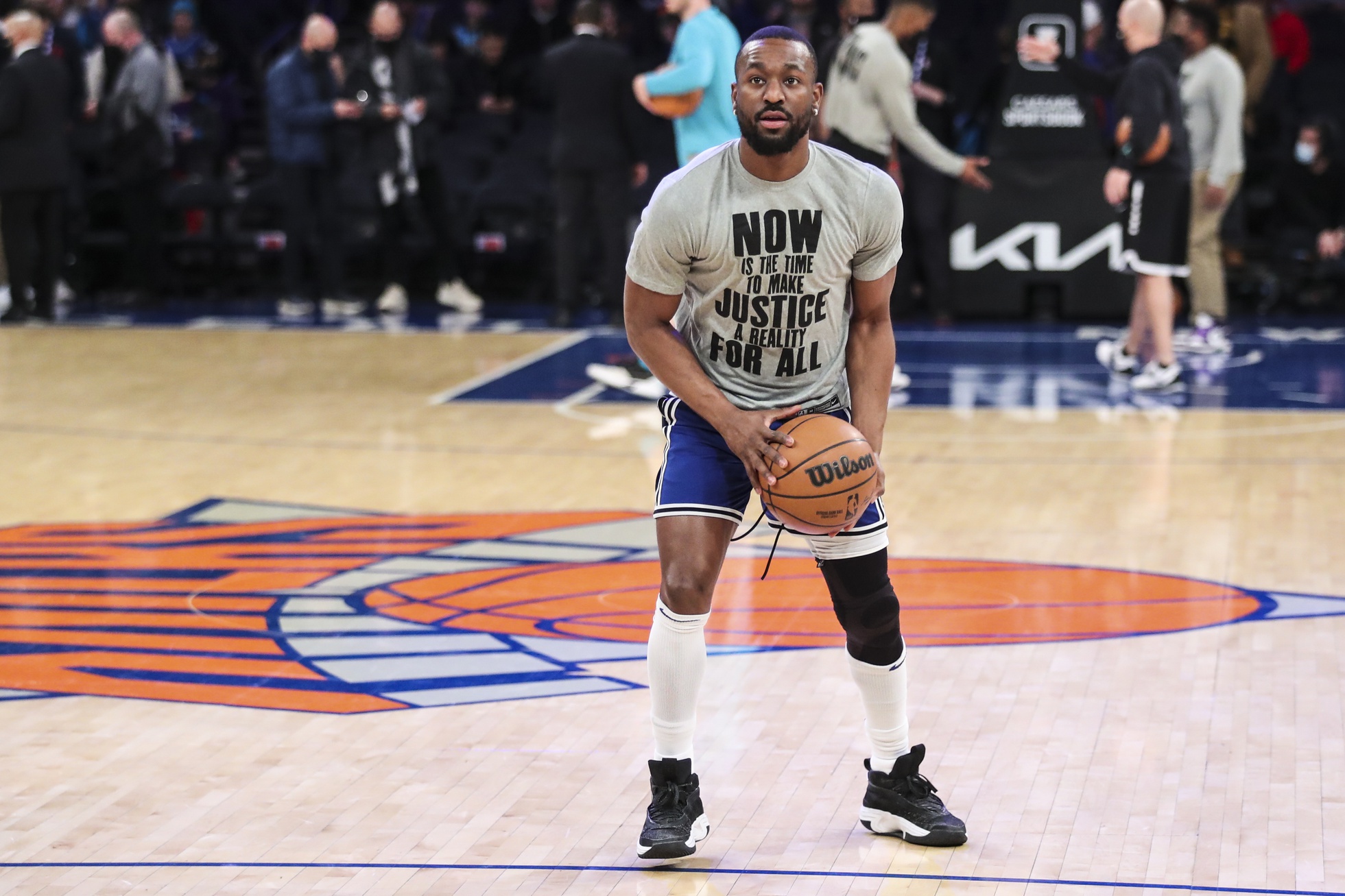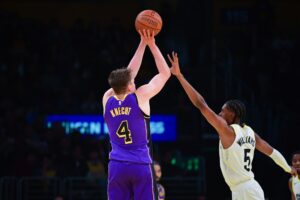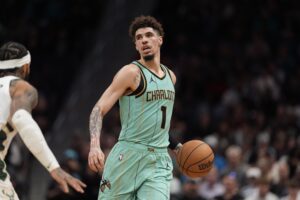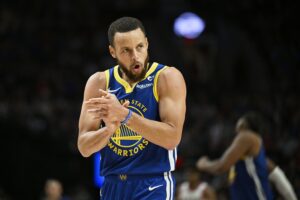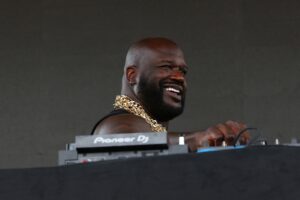The deadly crossover. The reverse layup. The shimmy that you just knew was coming after he hit a clutch three. All of these were trademarks of the great Kemba Walker, one of the shiftiest point guards of the 2010s. On July 2nd, Walker officially announced his retirement from basketball, ending his career. However, there are too many people today who only know of Walker from his tenure on the Celtics, and as a backup for the Knicks and Mavericks. In reality, Kemba was so much more than that. This is a tribute to the career of Kemba Walker so that we never forget the amazing career that he had.
Thank you, basketball. pic.twitter.com/gLUbQnZMP5
— Kemba Walker (@KembaWalker) July 2, 2024
A Tribute to Kemba Walker
UConn
The legend didn’t start when he reached the NBA; it started when he took college basketball by storm. A six-foot point guard from New York, Walker chose UConn to play college basketball over numerous other schools. The school felt his presence immediately, as the team went 31-5 when Walker was a freshman. He didn’t start, but still played 25 minutes a night and averaged nine points per game, respectable for a college freshman. The next year, Walker displayed improvement, starting in every game and averaging 14.6 points, 4.3 rebounds, 5.1 assists, and 2.1 steals per game. However, it was his incredible junior season that propelled him to national prominence, and up NBA Draft boards.
National Champion
Walker was the heart and soul of the Huskies, as he played 92.4% of his team’s available minutes during the 2010-11 season. His defense had always been good, but his offense continued to keep making improvements. He averaged 23.5 points per game his junior season and scored 42 points against Vermont. Walker never touched a 30-point game in his first two seasons with the Huskies, but by the end of his junior year, he held the record for most 30-point games in a season by a UConn player (11).
Finishing off their regular season, UConn lost four of their last five games and came in 9th in the Big East Conference. Yet, despite everyone writing them off for postseason play, Walker and his teammates won their final 11 straight games, including conference and NCAA tournament games. Walker hit a huge buzzer-beater in the Big East Tournament Quarterfinal, and as the three seed in March Madness, Walker propelled the Huskies to victories against the Kawhi Leonard-led San Diego State, a Kentucky team with six future NBA players, and a Brad Stevens-led Butler in the NCAA championship.
Charlotte
Coming off a national championship, Walker’s draft stock rose dramatically. 2011 was a loaded draft class, with All-Stars such as Klay Thompson, Kawhi Leonard, Jimmy Butler, Nikola Vucevic, and of course, Kyrie Irving. Yet, Walker garnered enough attention to be selected 9th overall by the Charlotte Bobcats. The team made it to the playoffs in Walker’s first year, but they lost in the first round. The team deteriorated after Tyson Chandler moved from the Bobcats to the New Orleans Hornets, and for a few years, the Hornets were one of the worst teams in the NBA. Most notably, in the lockout-shortened 2012 season, the team went 7-59, the worst record in NBA history.
Walker was the only bright spot of those abysmal teams. For his first two seasons, he led the NBA in games played. Cardiac Kemba averaged 17.6 points, 5.7 assists, and 1.5 steals per game in his first few seasons, doing everything he could to help keep the team afloat. For the 2014-15 season, the Bobcats rebranded back to the Charlotte Hornets. After the most abysmal seasons, the Hornets went back to being an average NBA team. They made the playoffs three times in the 2010s but lost in the first round every time. Notably, Kemba remains the Hornets’ all-time leading scorer.
Prime Kemba
It was the 2016-17 season when Walker would hit his prime. Averaging 23.2 points per game on improved shooting efficiency, Walker was named an All-Star for the first time in his career. He would continue to be named one for the next four seasons, all the way through the end of his tenure with the Hornets. The team wasn’t very popular and sometimes struggled with their attendance numbers. However, with Walker’s popularity, the Hornets hovered around 16th-17th in the league. The drop was noticeable when the team traded him to the Celtics.
Even when the Hornets weren’t close to being a playoff team, or only just barely hovered around the mark, Walker kept fans entertained. His crossover was one of the quickest and most deadly in the league, a force to be reckoned with. He fearlessly drove on seven-footers, shifting around and under them with creative finishes.
Boston
Walker was traded to the Celtics in 2019 after the Hornets decided that they were going to fully rebuild instead of aiming for a late playoff spot. Walker thrived with the Celtics, leading them to the Eastern Conference Finals in 2020 alongside Jayson Tatum and Jaylen Brown. The 2019-20 season was Walker’s last All-Star season in the NBA, as the next year saw him only play 43 games. In 2021, the Celtics traded him to the Thunder for Al Horford, who the team realized they desperately needed. Not fitting their timeline, the Thunder waved Walker, and he signed with the New York Knicks. He would spend a year in New York, then Dallas, and then finish his professional basketball career with a season in Monaco.
While Walker quietly faded out of the spotlight, his time in it during the mid-2010s can’t be taken for granted. Walker electrified the game of basketball, with handles that seemed to rival Kyrie Irving or Stephen Curry. Even though people viewed him as the little guy, Walker always gave 110%, played aggressive defense, and remained a class act on the court. It’s why he twice earned the NBA’s Sportsmanship Award, to go along with his All-Star accolades.
Thank you Cardiac Kemba, for all the amazing highlights and memories. The NBA and its fans wish you a happy and fulfilling retirement.


